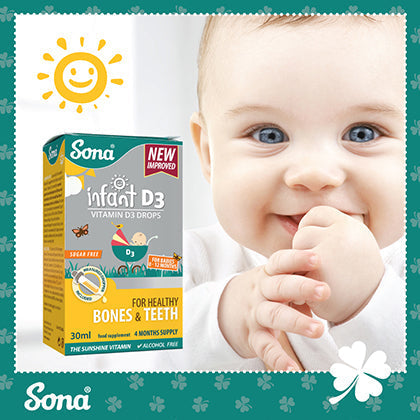
Once a baby reaches the six-month mark, their nutritional requirements are much higher. Reserves of nutrients which they were born with, such as iron, will begin to deplete if not substituted with food or formula.
While every baby will start to wean at a different age, it is recommended for babies to be breast fed for the first six months of life. After this, depending on your baby, you may wish to start introducing foods to their diet.
In this article we will describe some of the most important nutrients to ensure your baby is receiving enough of and where these nutrients can be found in food.
Iron
Rapid brain growth in a baby’s brain from the age of 6 months to 2 years coincides with the rapid increase in iron requirements of babies at this age. Deficiency of this nutrient may cause issues such as sensory and cognitive impairment or motor development issues.
Foods containing iron:
Haem Iron:
- Beef
- Liver pate
- Dark poultry meat
- Lamb
- Prawns
Non-Haem iron:
- Egg yolk
- Fortified cereals
- Lentils
- Green leafy vegetables
- Nut butter
- Tofu
If a baby is not consuming enough of these foods around the six-month mark, it can be useful to include a supplement in their diet to ensure they are meeting their needs.
Omega-3 Fatty Acids
Omega-3 fatty acids are essential components of our diet, as we cannot make them in our own body. In babies, DHA, a type of omega-3 fatty acid is responsible for heathy eye and brain development. Babies who are breastfed can receive omega-3 from breastmilk and once they begin weaning, they can receive it from oily fish. Including oily fish in their diet at least twice a week is the best way to ensure your baby is receiving enough DHA.
Vitamin D
In Ireland, it is now recommended for all people to supplement with vitamin D during the winter months as we do not get enough sunlight to make our own vitamin D during these months. Babies are no different and tend to be wrapped up and covered during the summertime too, which means that a supplement may be recommended for babies all year round.
Vitamin D is essential for healthy bones and immune system development in babies, so it is crucial to ensure your child is receiving enough.
Sona Infant D3 – Vitamin D Drops for babies is especially formulated for babies aged 0-12 months. It contains the recommended 5 micrograms of vitamin D per dose, which comes in a liquid form using a dropper.
References
Dwyer, J.T., 2018. The feeding infants and toddlers study (FITS) 2016: Moving forward. The Journal of nutrition, 148(suppl_3), pp.1575S-1580S.
Infant and Young Child Feeding: Model Chapter for Textbooks for Medical Students and Allied Health Professionals.
